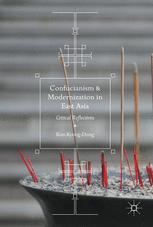

Most ebook files are in PDF format, so you can easily read them using various software such as Foxit Reader or directly on the Google Chrome browser.
Some ebook files are released by publishers in other formats such as .awz, .mobi, .epub, .fb2, etc. You may need to install specific software to read these formats on mobile/PC, such as Calibre.
Please read the tutorial at this link: https://ebookbell.com/faq
We offer FREE conversion to the popular formats you request; however, this may take some time. Therefore, right after payment, please email us, and we will try to provide the service as quickly as possible.
For some exceptional file formats or broken links (if any), please refrain from opening any disputes. Instead, email us first, and we will try to assist within a maximum of 6 hours.
EbookBell Team

4.4
22 reviewsSpanning the 19th and 20th centuries and identifying multiple waves of modernization, this book illustrates how principles originating in Chinese Confucianism have impacted the modernization of East Asia, especially in Korea. It also analyzes how such principles are exercised at personal, interpersonal and organizational levels. As modernization unfolds in East Asia, there is a rising interest in tradition of Confucianism and reconsider the relevance of Confucianism to global development.
This book considers the actual historical significance of Confucianism in the modernization of the three nations in this region, China, Korea, and Japan through the nineteenth century and early twentieth century to the aftermath of the end of World War II. Examining the existing literature dealing with how Confucianism has been viewed in connection with modernization, it provides insight into western attitudes towards Confucianism and the changes in perceptions relative to Asia in the very process of modernization itself.